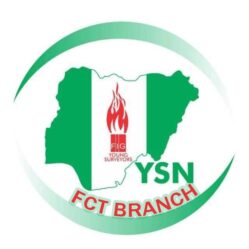What is Blockchain?
Blockchain is a method of recording information that makes it impossible or difficult for the system to be changed, hacked, or manipulated.
It is a distributed database or ledger that duplicates and distributes transactions across the network of computers participating in the Blockchain.
Blockchain technology is making significant strides in revolutionizing land administration systems, offering transparency, security, and efficiency in property transactions and management.
In traditional land administration, records are often centralized and susceptible to fraud or manipulation. Blockchain addresses these issues by providing a decentralized and tamper-resistant ledger that records property ownership, transactions, and other relevant information.
Countries like United States of America, United Kingdom, Sweden, Russia, Dubai and Brazil has adopted this technology into their land administration.
Advantages of blockchain in land administration:
✅ Creation of a transparent and immutable record of land ownership. By storing property titles and transactions on a blockchain, the information becomes accessible to authorized parties in real-time, reducing the risk of fraud and disputes.
✅ It can automate various aspects of land transactions, streamlining processes like property transfers and payments.
✅ Avoids physical archives for contracts and files. Thereby enhancing the efficiency of land registries by reducing the need for intermediaries and paperwork.
✅ Property transactions can be executed faster and with lower costs, benefiting both governments and individuals.
✅ Data and documents cannot be lost due to decentralized data management.
*Note:* Decentralized data refers to a system in which data is not stored in a single, central location, but is instead distributed across multiple nodes or locations.
Each member in the network has a copy of the exact same data in the form of a distributed ledger.
If a member’s ledger is altered or corrupted in anyway, it will be rejected by the rest of the members.
This is done so that no single person/group/organization has control over the data saved. Updates are done collectively.
In conclusion, the design of the Blockchain based land registry process has led to efficiency, effectiveness, transparency, speed, quality and cost for property management.
Thank you for reading. We expect your feedback (either as a contribution or a question on this topic)
ysnfctabuja@gmail.com
Signed ✍ :
a. Surv. Uju O. IZUEGBU, MNIS
Chair: YSN-FCT
b. Angela Omamuyovwi ANYAKORA
Head: Education Committee YSN-FCT
- Announcer: Joy John ODUH
Secretary: Education Committee YSN-FCT



Great article… I completely agree with your points.
Will share this with others